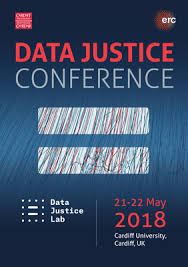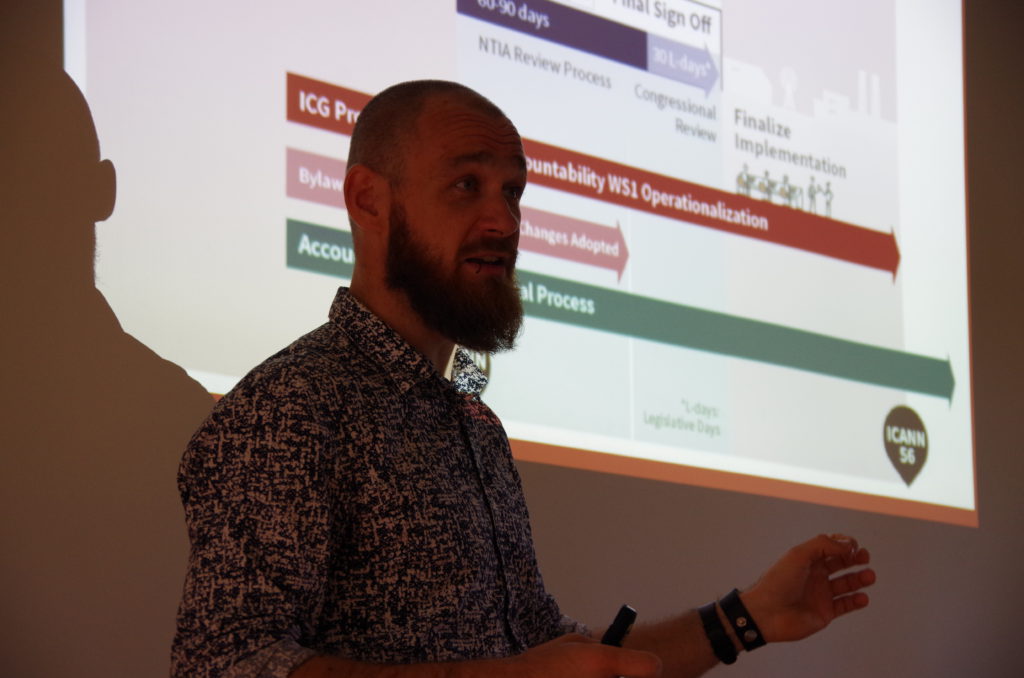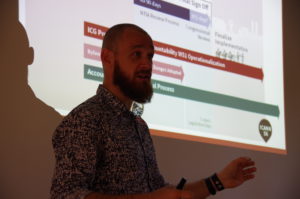Stefania was commissioned an article by the Brazilian business magazine Época Negócios. In sum, she argues that “estar ciente dos elementos que moldam profundamente nossos universos de informação é um passo fundamental para deixarmos de ser prisioneiros da internet”. Continue reading the article in Portuguese online. Here you can read the original in English.
Why personalization algorithms are ultimately bad for you (and what to do about it)
Stefania Milan
I like bicycles. I often search online for bike accessories, clothing, and bike races. As a result, the webpages I visit as well as my Facebook wall often feature ads related to biking. The same goes for my political preferences, or my last search for the cheapest flight or the next holiday destination. This information is (usually) relevant to me. Sometimes I click on the banner; largely, I ignore it. Most of the cases, I hardly notice it but process and “absorb” it as part of “my” online reality. This unsolicited yet relevant content contributes to make me feel “at home” in my wanderings around the web. I feel amongst my peers.
Behind the efforts to carefully target web content to our preferences are personalization algorithms. Personalization algorithms are at the core of social media platforms, dating apps, and generally of most of the websites we visit, including news sites. They make us see the world as we want to see it. By forging a specific reality for each individual, they silently and subtly shape customized “information diets”.
Our life, both online and offline, is increasingly dependent on algorithms. They shape our way of life, helping us find a ride on Uber or hip, fast food delivery on Foodora. They might help us finding a job (or losing it), and locating a partner for the night or for life on Tinder. They mediate our news consumption and the delivery of state services. But what are they, and how can they do their magic? Algorithms can be seen like a recipe for baking an apple tart: in the same way in which the grandma’s recipe tells us, step by step, what to do to make it right, in computing algorithms tell the machine what to do with data, namely how to calculate or process it, and how to make sense of it and act upon it. As forms of automated reasoning, they are usually written by humans, however they operate into the realm of artificial intelligence: with the ability to train themselves over time, they might eventually “take up” their own life, sort to speak.
The central role played by algorithms in our life should be of concern, especially if we conceive of the digital as complementary to our offline self. Today, our social dimension is simultaneously embedded and (re)produced by technical settings. But algorithms, proprietary and opaque, are invisible to end users: their outcome is visible (e.g., the manipulated content that shows up on one’s customized interface), but it bears no indication of having been manipulated, because algorithms leave no trace and “exist” only when operational. Nevertheless, they do create rules for social interaction and these rules indirectly shape the way we see, understand and interact with the world around us. And far from being neutral, they are deeply political in nature, designed by humans with certain priorities and agendas.
While there are many types of algorithms, what affects us most today are probably personalization algorithms. They mediate our web experience, easing our choices by giving us information which is in tune with our clicking habits—and thus, supposedly, preferences.
They make sure the information we are fed is relevant to us, selecting it on the basis of our prior search history, social graph, gender and location, and generally speaking about all the information we directly on unwillingly make available online. But because they are invisible to the eyes of users, most of us are largely unaware this personalization is even happening. We believe we see “the real world”, yet it is just one of the many possible realities. This contributes to envelop us in what US internet activist and entrepreneur Eli Pariser called the “filter bubble”— that is to saythe intellectual isolation caused by algorithms constantly guessing what we might like or not, based on the ‘image’ they have of us. In other words, personalization algorithms might eventually reduce our ability to make informed choices, as the options we are presented with and exposed to are limited and repetitive.
Why should we care, if all of this eventually is convenient and makes our busy life easier and more pleasant?
First of all, this is ultimately surveillance, be it corporate or institutional. Data is constantly collected about us and our preferences, and it ends up “standing in” for the individual, who is made to disappear in favoir of a representation which can be effortlessly classified and manipulated.“When you stare into the Internet, the Internet stares back into you”, once tweeted digital rights advocate @Cattekwaad. The web “stares back” by tracking our behaviours and preferences, and profiling each of us in categories ready for classification and targeted marketing. We might think of the Panopticon, a circular building designed in mid-19thcentury by the philosopher Jeremy Bentham as “a new mode of obtaining power of mind over mind” and intended to serve as prison. In this special penal institute, a single guard would be effortlessly able to observe all inmates without them being aware of the condition of permanent surveillance they are subjected to.
But there is a fundamental difference between the idea of the Panopticon and today’s surveillance ecosystem. The jailbirds of the internet age are not only aware of the constant scrutiny they are exposed to; they actively and enthusiastically participate in generation of data, prompted by the imperative to participate of social media platforms. In this respect, as the UK sociologist Roy Boyne explained, the data collection machines of personalization algorithms can then be seen as post-Panopticon structures, whereby the model rooted on coercion have been replaced by the mechanisms of seduction in the age of big data. The first victim of personalization algorithms is our privacy, as we seem to be keen to sacrifice freedom (including the freedom to be exposed to various opinions and the freedom from the attention of others) to the altar of the current aggressive personalized marketing in favour of convenience and functionality.
The second victim of personalization algorithms is diversity, of both opinions and preferences, and the third and ultimate casualty is democracy. While this might sound like an exaggerated claim, personalization algorithms dramatically—and especially, silently—reduce our exposure to different ideas and attitudes, helping us to reinforce our own and allowing us to disregard any other as “non-existent”. In other words, the “filter bubble” created by personalization algorithms isolates us in our own comfort zone, preventing us from accessing and evaluating the viewpoints of others.
The hypothesis of the existence of a filter bubble has been extensively tested. On the occasion of the recent elections in Argentina, last October, Italian hacker Claudio Agosti in collaboration with the World Wide Web Foundation, conducted a research using facebook.tracking.exposed,a software intend to “increase transparency behind personalization algorithms, so that people can have more effective control of their online Facebook experience and more awareness of the information to which they are exposed.”
The team rana controlled experiment with nine profiles created ad hoc, creating a sort of “lab experiment” in which profiles were artificially polarized (e.g., maintaining some variables constant, each profile “liked” different items). Not only did the data confirmed the existence of a filter bubble; it showed a dangerous reinforcement effect which Agosti termed “algorithm extremism”.
What can we do about all this? This question has two answers. The first is easy but uncomfortable. The second is a strategy for the long run and calls for an active role.
Let’s start from the easy. We ultimately retain a certain degree of human (and democratic) agency: in any given moment, we can choose to opt out. To be sure, erasing our Facebook account doesn’t do the trick of protecting our long-eroded privacy: the company has the right to retain our data, as per Terms of Service, the long, convoluted legal document—a contract, that is—we all sign to but rarely read. With the “exit” strategy we lose in contacts, friendships, joyful exchange and we are no longer able to sneak in the life of others, but we gain in privacy and, perhaps, reclaim our ability to think autonomously. I bet not many of you will do this after reading this article—I haven’t myself found the courage to disengage entirely from my leisurely existence on social media platforms.
But there is good news. As the social becomes increasingly entrenched in its algorithmic fabric, there is a second option, a sort of survival strategy for the long run. We can learn to live with and deal withalgorithms. We can familiarize with their presence, engaging in a self-reflexive exercise that questions what they show us in any given interface and why. If understandably not all of us might be inclined to learn the ropes of programming, “knowing” the algorithms that so much affect us is a fundamental step to be able to fully exercise our citizenship in the age of big data. “Knowing” here means primarily making the acquaintance with their occurrence and function, and questioning the fact that being turned into a pile of data is almost an accepted fact of life these days. Because being able to think with one’s own head today, means also questioning the algorithms that so much shape our information worlds.












